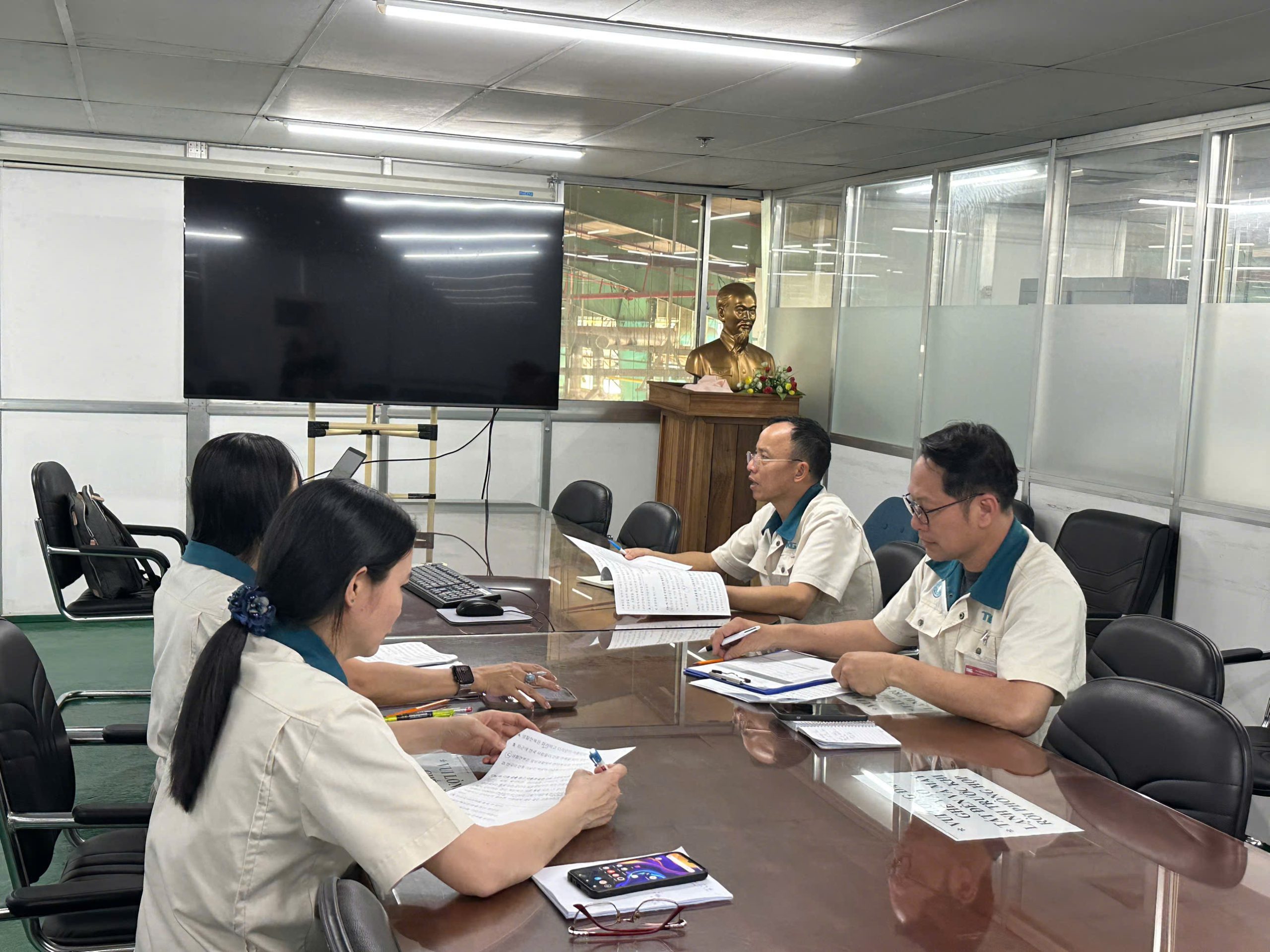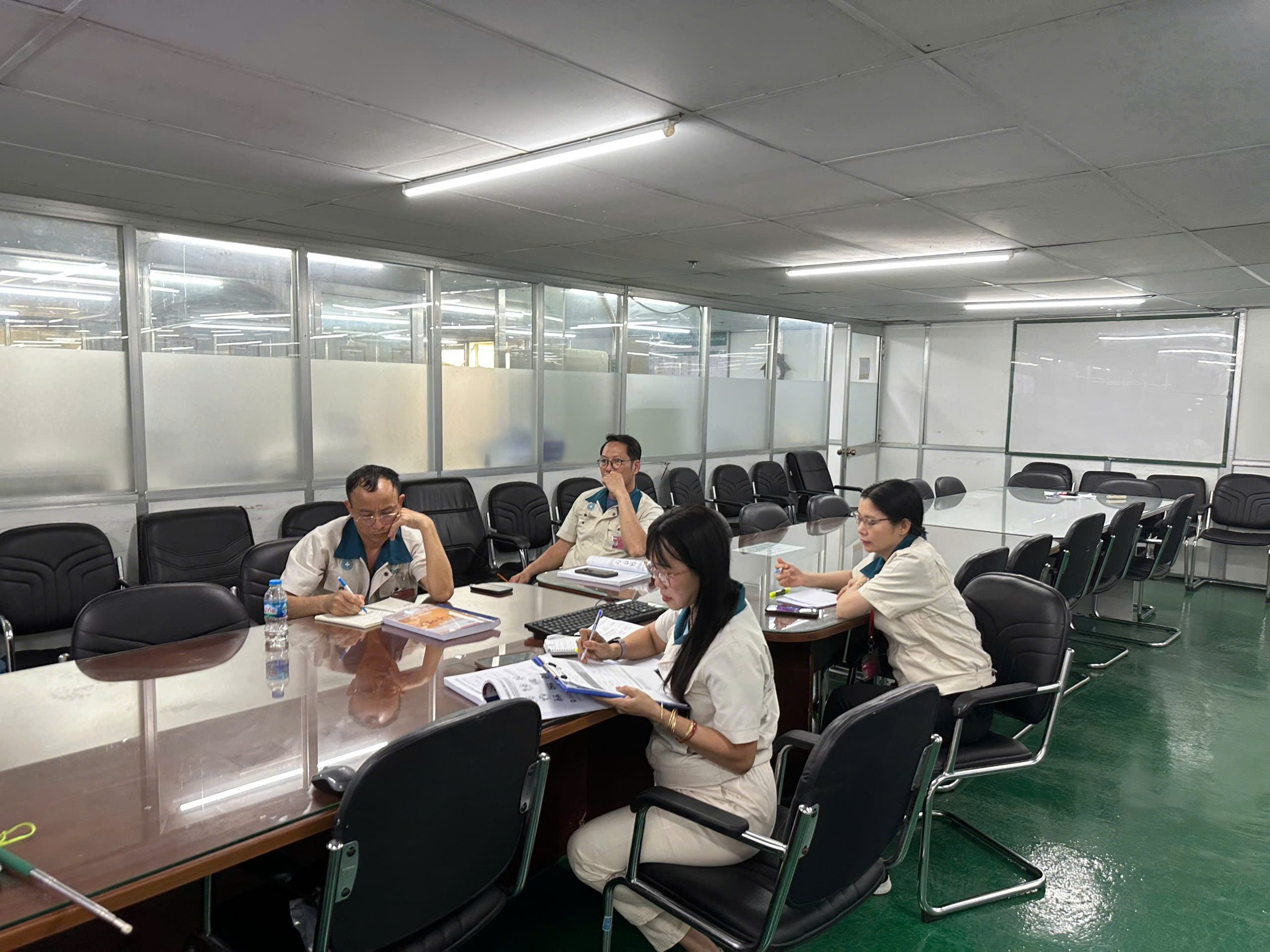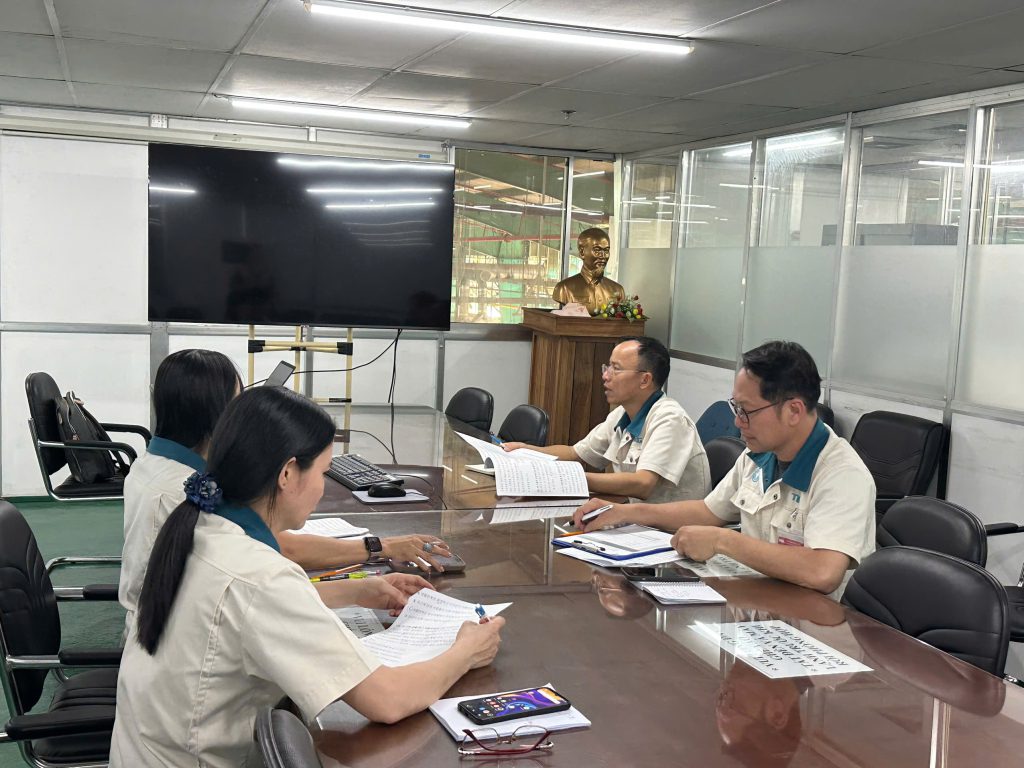Korean Class for Local Managers: A Comprehensive Solution for Language Barriers
In today’s globalized business environment, effective communication across cultural and linguistic boundaries is essential for success. Korean companies operating in Vietnam often face significant challenges due to language barriers between Korean executives and Vietnamese local management teams. These barriers can lead to misunderstandings, slower decision-making, and a cultural disconnect that hinders business performance. This article explores the strategic advantage of equipping local managers with Korean language proficiency and introduces the Intermediate Korean Class designed to address these challenges.

The Challenge: Language Barriers in Multicultural Teams
Language differences between Korean and Vietnamese team members can pose significant challenges in the workplace. These differences often result in misunderstandings, slower decision-making processes, and a lack of cultural cohesion. Addressing these language barriers is crucial for improving efficiency and fostering a harmonious work environment.
Misunderstandings and Miscommunications
Misunderstandings and miscommunications are common when team members do not share a common language. In Korean companies operating in Vietnam, language barriers can lead to incorrect interpretations of instructions, project details, and expectations. This often results in errors that could have been avoided with clear communication. Miscommunications can also strain relationships between Korean and Vietnamese staff, creating tension and reducing overall productivity. By bridging the language gap, companies can ensure that all team members are on the same page, reducing the likelihood of costly errors and improving workplace harmony.
Slower Decision-Making
Language barriers can significantly slow down decision-making processes. When managers and employees struggle to communicate effectively, it takes longer to convey ideas, discuss strategies, and reach consensus. This delay can hinder the company’s ability to respond quickly to market changes and seize new opportunities. In a fast-paced business environment, the ability to make timely decisions is critical. Providing local managers with Korean language skills can streamline communication, allowing for faster decision-making and improved agility in the business landscape.
Cultural Disconnects
Beyond language, cultural differences can also lead to misunderstandings and disconnects in the workplace. Korean business culture is distinct from Vietnamese culture, with different norms, values, and practices. Without a shared language, it can be challenging for Vietnamese managers to fully grasp the nuances of Korean business etiquette and corporate culture. This disconnect can result in unintended offenses or cultural faux pas that damage relationships. By learning Korean, local managers gain insights into Korean culture, enabling them to navigate these nuances more effectively and build stronger, more respectful professional relationships.
The Strategic Advantage: Why Korean Proficiency is Essential
Investing in Korean language training for local managers offers strategic advantages that go beyond overcoming language barriers. It enhances operational efficiency, fosters team cohesion, and deepens cultural understanding within the organization, ultimately driving business success.
Operational Efficiency
Clear communication is key to operational efficiency. When local managers are proficient in Korean, they can engage directly with Korean counterparts without relying on interpreters or translations. This direct communication reduces the risk of misinterpretation and speeds up information exchange, allowing projects to move forward more swiftly. With fewer language-related obstacles, teams can collaborate more effectively, leading to smoother operations and increased productivity. Korean proficiency empowers managers to take initiative, ask questions, and seek clarifications, ensuring that projects align with company goals and are executed efficiently.
Team Cohesion
A shared language fosters stronger team cohesion. When Vietnamese managers can communicate in Korean, it bridges the gap between them and their Korean colleagues, creating a sense of unity and understanding. This shared linguistic capability encourages open dialogue, collaboration, and mutual respect. Team members feel more connected and valued, leading to a more harmonious and productive work environment. Improved communication also helps prevent conflicts and misunderstandings, promoting a positive workplace culture where everyone works together towards common objectives.
Cultural Understanding
Language and culture are closely intertwined. By learning Korean, local managers gain valuable insights into the cultural context in which their Korean counterparts operate. This cultural understanding helps managers appreciate the underlying motivations and behaviors of their colleagues, leading to more effective collaboration and problem-solving. Additionally, it enables them to navigate cultural differences with sensitivity and respect, minimizing the risk of cultural missteps. A culturally agile workforce is better equipped to build strong relationships with Korean partners and clients, enhancing the company’s reputation and competitiveness in the market.
The Intermediate Korean Class for Local Managers: A Comprehensive Solution
The Intermediate Korean Class is designed to equip Vietnamese managers with the skills needed to communicate effectively in a Korean corporate setting. The program’s comprehensive curriculum and innovative learning approaches ensure that participants gain practical language skills and cultural insights that contribute to their professional growth and the company’s success.
Core Curriculum
The core curriculum of the Intermediate Korean Class focuses on practical skills for the workplace. It includes mastering complex grammar to enable precise and professional communication in business contexts. Participants learn to construct sentences with advanced grammatical structures, allowing for nuanced discussions and accurate reporting. The curriculum also covers expanding business and daily vocabulary, providing managers with the language tools needed to navigate diverse professional and social scenarios. Additionally, the course offers deep insights into Korean business culture and etiquette, helping participants understand workplace norms, hierarchy, and communication styles.
Innovative Learning Enhancements
The Intermediate Korean Class incorporates innovative learning enhancements that extend beyond traditional classroom instruction. The program offers an engaging offline learning environment where participants can practice interactively, receive immediate feedback, and engage directly with experienced instructors. A vibrant group study chat provides an active online community for continuous support, quick Q&A, and peer-to-peer learning, ensuring that learning continues beyond class hours.
The iMooc LMS platform offers flexible learning opportunities, allowing busy managers to access course materials and assignments anytime, anywhere, ensuring consistent progress without disrupting work schedules.
Besides, we can elevate your managers’ Korean speaking ability with CARROT’s innovative SPAC (Speaking Proficiency Assessment Center). This advanced app-based tool serves as a crucial benchmark for all our language courses, providing objective entry and exit evaluations for students. SPAC meticulously measures and analyzes linguistic competency across key areas: speaking ability, fluency, speaking composition, and logical coherence. By leveraging SPAC, CARROT ensures a data-driven approach to language training, allowing you to clearly measure the effectiveness of our programs and witness the tangible progress of your local managers. Invest in clarity and measurable improvement for your team.
Expert Instruction
Expert instruction is a cornerstone of the Intermediate Korean Class. The program is led by qualified instructors with extensive experience in teaching Korean as a second language. These instructors bring a wealth of knowledge and practical insights into the classroom, ensuring a high-quality learning experience for participants. Their expertise allows them to tailor instruction to meet the specific needs of corporate clients, providing personalized guidance and support. With expert instruction, participants can develop the language skills and cultural understanding needed to excel in their roles and contribute effectively to the company’s success.
Conclusion
Equipping local managers with Korean language proficiency is a strategic investment that can significantly enhance business performance for Korean companies operating in Vietnam. By overcoming language barriers and fostering cultural understanding, companies can improve communication, strengthen team cohesion, and drive professional growth. The Intermediate Korean Class offers a comprehensive solution, providing participants with the skills and insights needed to thrive in a multicultural business environment. By partnering with us for Korean language training, companies can ensure measurable progress and a tangible return on investment, ultimately achieving greater success in the global marketplace.
Ready to bridge the communication gap and unlock the full potential of your Vietnamese management team? Our Intermediate Korean Class for Local Managers is designed to deliver tangible results for your company.
Contact us today to discuss how we can customize a training solution for your team and elevate your business communication.


